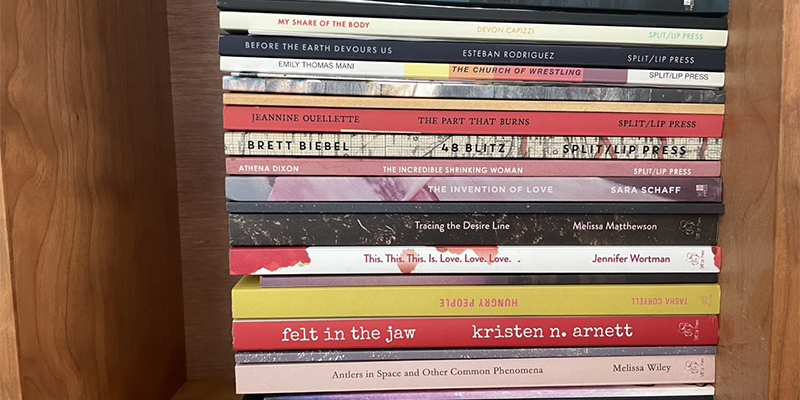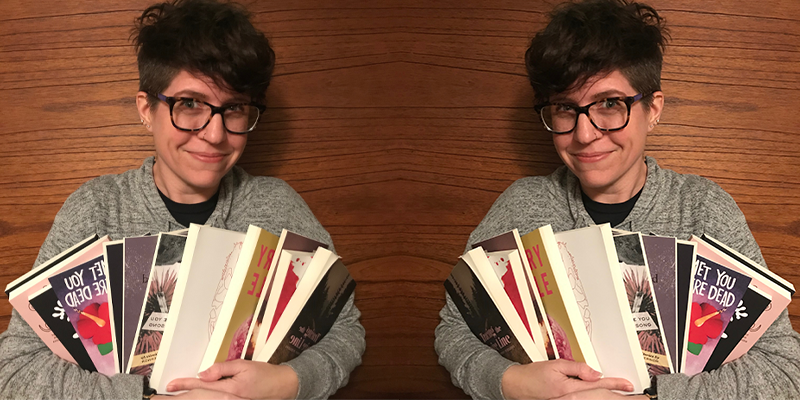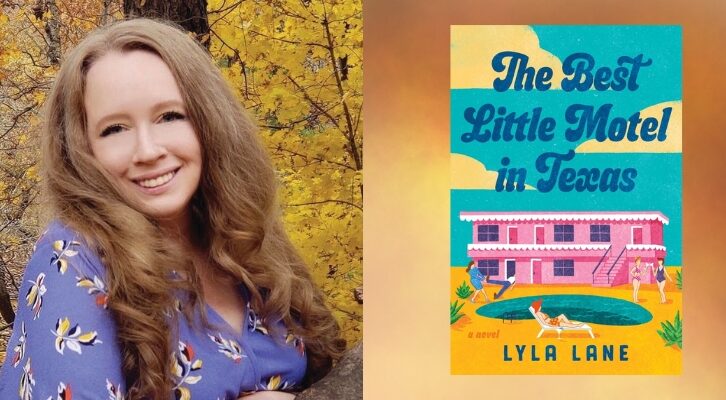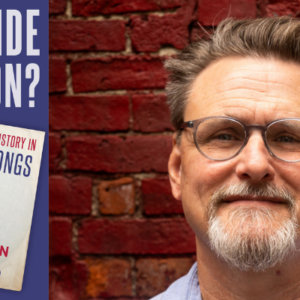
Interview with an Indie Press: Split/Lip Press
“Small presses often begin with a shoestring and a dream.”
Split/Lip Press was started in 2014 and has remained dedicated to publishing boundary-breaking fiction, nonfiction, and hybrid books. Director and Publisher Kristine Langley Mahler generously answered a few questions about the ups and downs of running a small press. For some real brass tax answers about financing projects, paying your workers, and what’s coming next for this great press, read on.
*
What are some of the benefits of working at an independent press?
As a Midwesterner settled into her home with a family and no desire to relocate, working for a small press—particularly one which is decentralized and “lives online” like Split/Lip Press—has allowed me to be a part of the publishing world, as I know it has for many other team members of SLP who, similarly, were interested and talented but simply not able to drop everything to move for what is, for nearly our whole team, part-time work.
*
Is there a particular quality, style, or other characteristic that connects the projects that you take on?
We look for boundary-breaking work, which we’ve construed in a number of ways over the years. Sometimes that “boundary” has been a typical genre construction that we feel the work is defying; sometimes it has been opening the door for historically under-represented authors; sometimes it has been the subject of the work. We’re not martinets about the term being an exact fit for each book we take on, but as a small press unbeholden to a university system or having to justify selections to a marketing division, we have the privilege of focusing distinctly on the work that excites us rather than the work that looks like it’ll turn the highest profit. We look for the work that needs to be in the world.
*
Were there any titles in particular that were game-changers for your business?
That’s a tricky question, because we’ve had the honor of being the first home for a number of authors who have gone on to publish with much bigger presses—we have early books from Jared Yates Sexton (The Hook and the Haymaker and I Am the Oil of the Engine of the World), we published Kristen Arnett’s debut short story collection Felt in the Jaw, and we also published Tasha Coryell’s debut short story collection Hungry People.
And yet I would say that our game-changer books haven’t necessarily been the ones which have sold the most copies! Honestly, I am very, very proud of books like Calvin Walds’ 2021 Nonfiction Chapbook Contest winner Flee, an immersive, multimedia experience—on the page—which uses photographs alongside theory and lyric commentary to essay. Calvin’s book caused us to rethink the opportunities we had been neglecting by seeking more traditional prose.

*
What are some of the biggest risks you’ve taken as a business? How did you navigate them?
We took a big risk when we started paying the people who work for us! That sounds funny, and only in the lit world would this have been possible: to run a business essentially staffed by volunteers. In 2020, Split/Lip Press began paying our genre editors a stipend for each submissions period and title they edit; paying our book designer for the interior and exterior design work on every title; paying our marketing team, managing director, and director a small monthly stipend for their ongoing work; and paying our reading teams 25 percent of the profits from each submissions period. We also do a yearly profit-share among the editorial team using our net income over projected expenses for the next year. No one is getting paid at an appropriate scale, but it was a risk to take the work off the “volunteer” spectrum and commit a significant portion of our income to payroll—where it hadn’t always been!
We’ve navigated this by instituting a submission fee for each reading period, which often covers the entire payroll costs for the book we select. We also set aside the entire next year’s projected expenses—so we always know we have enough to keep going—and by slowly and incrementally increasing the professionalism of our processes. Small presses often begin with a shoestring and a dream among creatives who want to publish good books, but they require a significant amount of business-mind to ensure that those books will always have a home at a sustainably built and professionally run press. Our books at Split/Lip do now.
*
What are some projects you’re particularly excited about at the moment?
We’ve got a stellar 2023 line-up: in March, Mary Lynn Reed’s debut short story collection Phantom Advances follows young queer protagonists on the backroads of America while questions of gender and identity ride shotgun; in June, our 2022 Fiction Chapbook Contest winner selected by Isle McElroy, Maybe This Is What I Deserve by Tucker Leighty-Phillips, which is a fantastic chapbook of flash fiction set in Appalachia through the 3D glasses of childhood poverty; in September, Colleen Burner’s Sister Golden Calf, a road-trip novella with two sisters selling and trading the invisible things they capture in jars along the roads of New Mexico while they search for magic and belief; and closing out the year with a bang, in December we’ll publish Sean Enfield’s Holy American Burnout!, a formally restless essay collection threading cultural critique into the historical fabric of Black and biracial identity—as both an educator and student—while teaching in a predominantly Muslim private school in Texas during the 2016 presidential campaign.
*
How do debut authors reach/pitch you?
We run four genre-distinct submission periods through our Submittable platform each year, which is the only way to get your book in front of us. If you’re represented by an agent, you still need to submit your book during the appropriate subs period, just like everyone else. We don’t solicit books and we don’t look at unsolicited (read: sent directly to the press inbox) books either. We read short story and flash fiction manuscripts from January to March; chapbooks (alternating between fiction and nonfiction/hybrid) from April to June; novels and novellas from July to September, and nonfiction/hybrid full-length books from October to December.
*
What’s another indie press you love/would recommend?
I really admire the authenticity, small-press-citizenship, and of course—BOOKS—coming out of Hub City Press and Belt Publishing. The directors, Meg Reid (Hub City) and Anne Trubek (Belt), have a talent for pushing their press’s books (and authors) into places that small press authors seldom get to go, though they often deserve it. And their honesty on social media about the teeth-gritting issues of small press publishing is refreshing!
Katie Yee
Katie Yee is a Brooklyn-based writer.



















